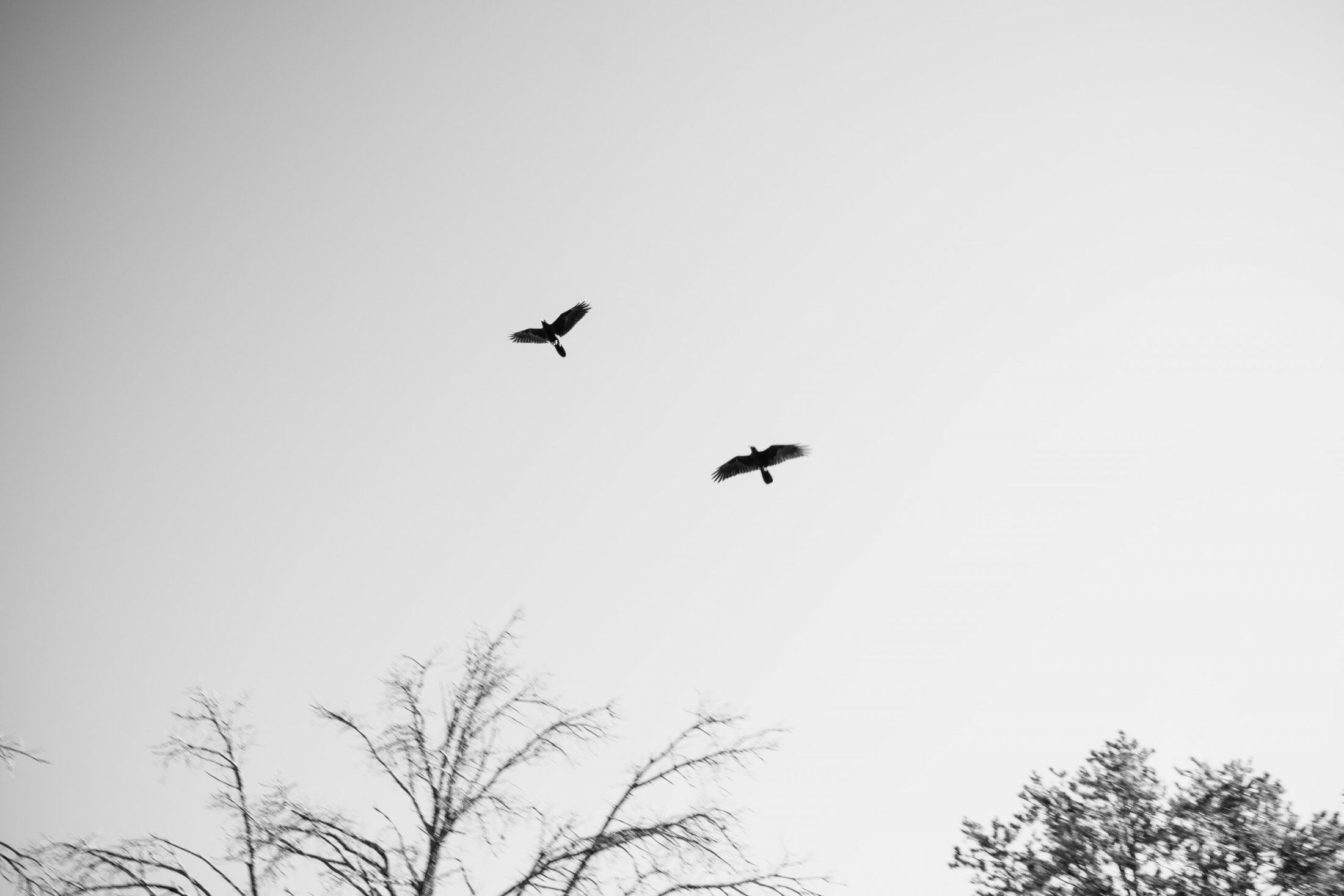
Seeds of Radical Renewal: A Three-Month Leadership Course (Fall 2021)
with Spiritual Ecology facilitators (Applications Closed)

When we dare to face the cruel social and ecological realities we have been accustomed to, courage is born and powers within us are liberated to reimagine and even, perhaps one day, rebuild a world.
Overview
The pace of our planetary unraveling is accelerating. Global pandemic, raging wildfires, social injustice, deepening divisiveness—the signs of destruction and desecration are now inescapable. As we come face-to-face with ourselves in the darkening days of a dying civilization, and as we increasingly recognize that the root cause of ecological destruction is a spiritual crisis, so too do we sense the possibility of radical renewal. The seeds of new beginnings are emerging from deep within the understory, the hidden forces of creation are awakening and slowly taking root around the world.
The role of leadership in younger generations has never carried more weight than it does now. There is a growing global movement of young leaders who are calling for change and challenging us to abandon destructive stories of progress that are rooted in oppression, colonization, and unlimited economic growth.
As we witness the deep fracturing of our civilization, how can we seed the stories and foundations for a society to come? How can we create, nurture, and sustain livelihoods and projects that serve the work of reuniting people, the land, and the sacred? What does inclusive leadership, grounded in an ethic of care, look like in an unfolding apocalyptic reality? What creative possibilities are waiting to emerge when like-minded and like-hearted individuals come together to imagine and implement radical beginnings?
This thirteen-part leadership course offers emerging leaders the opportunity to deepen their skills in building and co-creating spaces of renewal, reciprocity, and reverence. Designed for those working in social and environmental fields, this course is an in-depth exploration of the emerging field of spiritual ecology: an evolving philosophy that is rooted in the understanding that ecology, cultural, and spirituality are interdependent.
Much of the inspiration for this course grew out of Kalliopeia Foundation’s Spiritual Ecology Fellowship, a leadership program that has supported young leaders and innovators who recognize the need to create a future that is not driven by materialism and greed, but is rooted in the spiritual values of reverence for nature, interconnectedness, stewardship, compassion, and service.
Throughout the course, participants will be mentored in building, deepening, and implementing new or existing projects and work that speak to the threads connecting ecology, culture, and spirituality. The curriculum will feature five themed modules: origins, transitions, principles, practices, and leadership. With the guidance of guest teachers—including brontë velez, David Abram, Bayo Akomolafe, Chelsea Steinauer-Scudder, Emmanuel Vaughan-Lee, Jim Enote, Kalyanee Mam, and Rowen White—participants will have the opportunity to learn from the wisdom and expertise of philosophers, writers, filmmakers, activists, and community leaders. Additionally, a number of course sessions will offer space for facilitated discussion, personal reflections, group sharing, storytelling, and support for workshopping projects.
Project development
We each have a unique capacity to create the threads that will weave radical beginnings into existence. Through mentorship and peer-to-peer workshopping, participants will have the opportunity to share, design, and expand upon project ideas that embody the principles of spiritual ecology and that have the potential to be catalysts for change. We expect that participants will be at different stages with their projects—whether they are just beginning to seed ideas, ready to launch a new project, hoping to deepen existing work, or looking for teachings that speak more broadly to their life’s work and direction, we will provide guidance on how to practically integrate and implement some of the key teachings from the course into their work.
Modules
Origins: The Seeds of Our Beginnings
As we seek to reconnect with what has been lost and seed new beginnings, let us root in our own diverse experiences and practices of remembrance and reverence. What are our personal and collective spiritual ecology origin stories? What memories and teachings are held within our connections to place, land, or ancestry? How do we define what is sacred?
Transitions: Witnessing the End of an Era
We are living in a time of great social and ecological instability, where the forces of both creation and destruction are evident. Even as deep uncertainty lies before us, so too does possibility. What does it mean to live at the end of an era? How do we hold the darkness while finding the power to contribute to ecological, spiritual, and cultural renewal?
Principles: The Inner and Outer Work of Restoration
The work of restoration applies not only to polluted waters, degraded lands, and broken human systems but also to our relationships with the more-than-human world. How can the spiritual ecology values of reverence for nature, interconnectedness, stewardship, compassion, and service guide us in entering into and embodying a new way of being? What does it mean to live in right relationship with the more-than-human world?
Practices: Invitations to Belonging
We are living in a time of great uncertainty. Our work as leaders in an age of societal and climate breakdown can take a great toll on us, reminding us of the importance of cultivating practices that bring us into a space of awareness and belonging. When we turn our attention to the land, we are reminded that an embodied knowledge of place enables us to more fully enter into our work. What practices and rituals can we create to stay grounded and true to ourselves and our work, even in the midst of upheaval? What does it look like to live a life of belonging?
Leadership: Creating Spaces for Renewal
As global leaders and institutions fail to take responsibility for the planetary crisis, younger generations are increasingly stepping into roles of leadership, challenging hegemonic and colonialist narratives and offering new ways forward that understand the multiplicity of the challenges we face. How do we take our skills of leadership and apply them to building spaces for renewal, reciprocity, and reverence? What are the inner and outer dimensions of changemaking and the skills needed to be effective social and environmental leaders? How can the practice of deep listening guide us in our work?
Schedule
All sessions will take place on Thursdays from 10:00am–12:00pm (Pacific).
| Topic | Date | Time |
|---|---|---|
| Part 1 | Thursday, September 2nd, 9th, 16th, & 23rd | 10am – 12pm (PDT) |
| Part 2 | Thursday, September 30th, October 7th, & 14th | 10am – 12pm (PDT) |
| Part 3 | Thursday, October 21st, 28th, & November 4th | 10am – 12pm (PDT) |
| Part 4 | Thursday, November 11th, 18th, & December 2nd, 9th | 10am – 12pm (PST) |
Application & Cost
The deadline for applying to this course was Tuesday, July 20th. Applicants will be notified whether they have been admitted by July 28th. We hope to offer another iteration of this course in 2022.
The program costs $650. Some scholarships will be available for those who need it. If you are accepted into the course, payment is due within one week of the first session. Cancellations made up to one week before the course begins will result in a full refund. After that, refunds will not be available unless under special circumstances.
Please contact events@emergencemagazine.org if you have any questions.
Instructor Bios
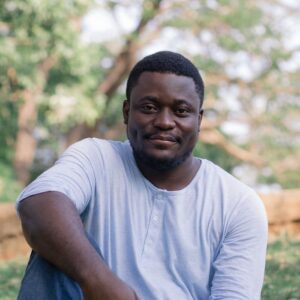
Bayo Akomolafe
Bayo Akomolafe is an international speaker, teacher, public intellectual, fugitive neo-materialist, essayist, and author of two books, These Wilds Beyond our Fences: Letters to My Daughter on Humanity’s Search for Home (North Atlantic Books) and We Will Tell our Own Story: The Lions of Africa Speak. Bayo is the Executive Director and Chief Curator for The Emergence Network and hosts of the online course, ‘We Will dance with Mountains’. When he takes himself less seriously, he is a father to Alethea and Kyah, and the grateful life-partner to Ej.

brontë velez
brontë velez’s work and rest are guided by the call that “black wellness is the antithesis to state violence” (Mark Anthony Johnson). As a black-latinx, transdisciplinary artist, designer, trickster, and wakeworker, their eco-social art praxis lives at the intersections of black feminist placemaking and prophetic community traditions, environmental justice, and death doulaship. They are currently the creative director for Lead to Life design collective, an initiative that bronte co-founded in 2017 as a fellow during Kalliopeia Foundation’s Spiritual Ecology Fellowship Program.
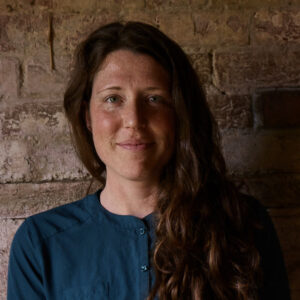
Chelsea Steinauer-Scudder
Chelsea Steinauer-Scudder is a writer based in northern New England. As a staff writer for Emergence Magazine, she explores the human relationship to place. Her work has been featured in Crannóg Magazine, Inhabiting the Anthropocene, and the EcoTheo Review. She is currently writing her first book.
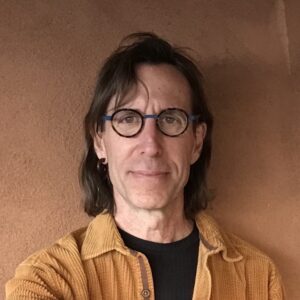
David Abram
David Abram, PhD, is a cultural ecologist and philosopher. He is the founder and creative director of the Alliance for Wild Ethics. His books include Becoming Animal: An Earthly Cosmology and The Spell of the Sensuous: Perception and Language in a More-than-Human World.
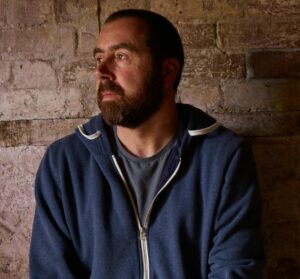
Emmanuel Vaughan-Lee
Emmanuel Vaughan-Lee is an Emmy and Peabody Award nominated filmmaker and a Naqshbandi Sufi teacher. His films include: Earthrise, Sanctuaries of Silence, The Atomic Tree, Counter Mapping, Marie’s Dictionary, Isle de Jean Charles, Yukon Kings, Elemental, and What Would It Look Like. Emmanuel’s films have screened at NYFF, Tribeca Film Festival, SXSW, Hot Docs, Thessaloniki Film Festival, exhibited at the Smithsonian Museum and featured on PBS POV, National Geographic, New York Times Op-Docs, The New Yorker and The Atlantic. He is the founder and executive editor of Emergence Magazine. He lives and teaches in Inverness, California.
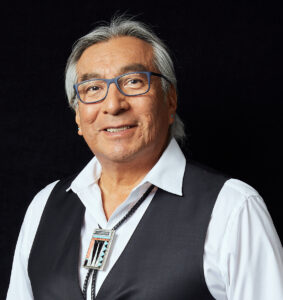
Jim Enote
Jim Enote is a Zuni tribal member and has spent over 40 years working professionally to protect and steward cultural and natural resources. He is the CEO of the Colorado Plateau Foundation, which supports regional Native communities to protect water and sacred places, ensure food security, and preserve languages and ancestral knowledge. He also serves as the chair of the board of the Grand Canyon Trust and lives in Zuni, New Mexico.
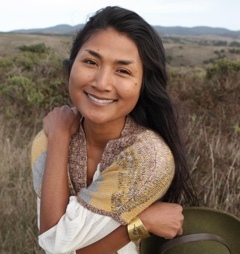
Kalyanee Mam
Kalyanee Mam is an award-winning filmmaker whose work is focused on art and advocacy. Born in Battambang, Cambodia, during the Khmer Rouge regime, Kalyanee immigrated to the United States in 1981 with her family. Her debut documentary feature, A River Changes Course, won the World Cinema Grand Jury Prize for Documentary at the 2013 Sundance Film Festival and the Golden Gate Award for Best Feature Documentary at the San Francisco International Film Festival. Her other works include documentary shorts Lost World, Fight for Areng Valley, Between Earth & Sky and Cries of Our Ancestors. She has also worked as a cinematographer and associate producer on the 2011 Oscar-winning documentary Inside Job. She is currently working on a new feature documentary, The Fire and the Bird’s Nest.
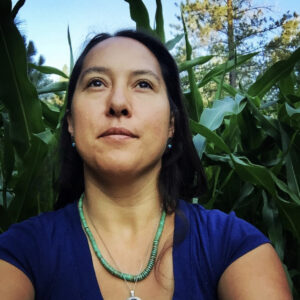
Rowen White
Rowen White is a Seedkeeper from the Mohawk community of Akwesasne and an activist for Indigenous seed sovereignty. She is the director and founder of Sierra Seeds, an organic seed cooperative focusing on local seed production and education, based in Nevada City, California. She teaches creative seed training immersions around the country within tribal and small farming communities.